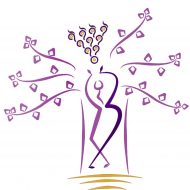Vanaja’s now 87yr. old mother, who had a mother probably in the autistic spectrum, so Vanja’s mother Varija grew up with kind of no mothering. And in her zeal to ensure that her daughter got the famous or infamous ‘mother’s love’ she landed up controlling her daughter to a point where the control got unbearable that the daughter walked away from the mother’s house.
This is a classic example of mother’s wound. What is this mother’s wound
The best way to understand MOTHER WOUND would be understand it as lack of mothering. This gets handed down generation to generation. This shows up both in mother-daughter or mother-son relationship, and manifests as how we experience parenting and how we parent.
The way we look at ourselves and we process information comes from our primary caregiver the mother in most cases. The existence of mother wound is a vague, persistent sense that, “there is something wrong with me” it results in us not fulfilling our potential.
In patriarchal society it becomes very contradictory. Mother’s pass on their wounds to the daughter, on hand demanding that the daughter achieve what they failed to achieve. In the Indian society once the daughter is married it is assumed that she will put herself as her own last priority. Anything otherwise is seen as toxic behaviour.
This has lead to many women not achieving their full potential, and in turn handing the rule book to their children. The sons on the other hand see the dichotomy of a docile mother at home and an all-powerful teacher at school.
The paradox emerges here, the social conditioning says that the mother has to be available to the child 24×7 the expectation is created. When this expectation is not met it results in a mother wound just check how many are there on your list:
- Your mother just wasn’t there for you on an emotional level.
- You were reluctant to turn to your mother for comfort or security
- You doubted you had your mother’s approval so you had to be what was your concept of your mother’s concept of perfect.
- You felt nervous and frightened around your mother.
- Your mother expected you to take care of her physically or emotionally.
This would give rise certain negative feelings, like
- Low self-esteem – secure attachment makes the child feel that they matter. This allows the child to develop a sense of self and self-belief.
- Lack of emotional awareness – when the mother is emotional available for the child, she is able to help the child label the feelings and manage them. then child does not have to suppress the instability caused by the negativity, they learn how to manage them.
- Inability to self-soothe
- The feeling that warm and nurturing relationships aren’t in your reach.
Detail history taking often reveals a pattern of mothers taking physical care of their children but not giving them love, care and security. There is usually a lack of empathy and the child is not allowed to express negative emotions. Mothers could be extremely critical or micromanaging the children. Mothers were not available for their children either because of career, or other needs. It is possible for working mothers, or even single mothers to be there for their children. Mothers themselves have been victim of physical trauma and have not processed it. they are unable to offer love or nurturing. Mother had a substance abuse history or mental health condition.
Mother wound could manifest in parenting as
- A mom dedicated to breaking the cycles of mother-child pain.
- Not wanting to repeat the same painful situations you grew up with, with your children.
- Finding yourself having intense triggers with your child and not knowing how to handle it.
- Feeling overwhelmed and unsure about balancing mothering, selfcare and other things.
Mother wound and ancestral lies.
- Feeling like the older you grow the more tensions you have with your family of origin.
- Noticing that when you are honest and articulate, then major conflicts arise.
Mother wound shows up in our relationships as:
- We attract partners who mirror the same issues we had with our parents.
- We tend to exhibit co-dependence pattern of people-pleasing, not prioritizing yourself, over-functioning for your partner.
- Issues in setting boundaries for the fear of abandonment.
- Creating Passive aggressive dynamic to get deep connection, but tend to push away for the fear of getting hurt.
Friendships
- Tend not be reciprocal, as you desire, or deserve.
- Attracting friends who are similar to your mother.
Career
- Feels stalled. there is a sense of being paralyzed to fulfil the next career goal.
- Unable to speak ideas or take risk for the fear of being exposed or criticized.
TREATING MOTHER WOUNDS
Ideally it is treated like PTSD, In my clinic I use a combination of LIGHT therapy and hypnotherapy. life rescripting.
If you would like to work on your mother wound… join us on this link: https://t.me/+H5iI5QPdeSthYmI9

I feel most of us don’t even recognise the mother wounds till late in life. And then we trace the generational patterns. However, it is never too late to take new steps.
yes i used to deal with this one on one, and my patients would be off medications, in 21 days.
Last month we did a specific retreat and the break through was much faster.
My colleague and I are having another one on July 30-31.